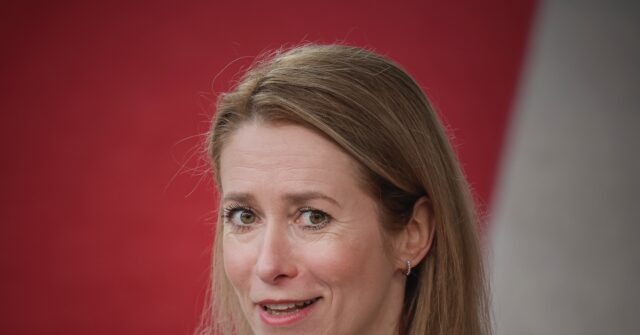TALLINN, Estonia (AP) – Estonia’s Prime Minister Kaja Kallas said Saturday that her centre-right Reform Party has clinched a deal with two other parties to form a coalition government, five weeks after a general election in the Baltic country.
The party councils of Kallas’ pro-business Reform Party, which overwhelmingly won Estonia’s March 5 parliamentary election with 31.2% of the vote, the centrist Estonia 200 party and the Social Democratic Party said they would form the coalition after agreeing on government programs for the next four years following lengthy talks.
“This agreement ensures that Estonia is protected, that we can continue as an independent and self-sustaining country,” Kallas, who will remain as prime minister, said during a news conference.
Kallas has held the premiership of Estonia – a European Union and NATO member – since January 2021, when she became the first female head of government in the nation of 1.3 million.
The Reform Party was also the senior partner in the outgoing three-party government with the Social Democrats and the conservative Isamaa (Fatherland) party.
Kallas, 45, has chaired the Reform Party since 2018, and the new Cabinet will be her third.
Reform is set to have seven ministerial portfolios, including Kallas’ prime minister post, the finance minister and the defence minister portfolios in the 13-member Cabinet. It would hold a 60-seat majority at the 101-seat Riigikogu, the Parliament.
Estonia 200, which is to have the foreign minister portfolio, and the Social Democrats would have three ministerial portfolios each.
Estonia’s government said Tuesday it has decided to remove a Soviet-era monument from public space in an eastern border town. https://t.co/D8hS1douyZ
— Breitbart News (@BreitbartNews) August 16, 2022
Kallas said her new Cabinet would face difficult financial, security, education and other decisions that are “necessary for Estonia.”
“We want Estonia to be protected, the well-being and livelihood of our people to be guaranteed, the state´s finances to be in order, education, language and culture to be preserved, and tomorrow to be better for everyone,” she said.
She said defence and security would top the new Cabinet’s agenda.
“Security is a main concern,” said Kallas, referring to Estonia’s neighbour, Russia, which is waging a war in Ukraine. “That’s why we are increasing our defence expenditure … in the coming years.”
Kallas has emerged as one of Europe’s most outspoken supporters of Kyiv, and Estonia has been a major supplier of military and humanitarian aid to Ukraine since the Russian invasion started last year.
“A lot depends on how the war in Ukraine will go. So I hope that Ukraine wins the war and Russia goes back to its territory,” Kallas said.
Although Reform won nearly twice as many votes as the March election’s runner-up, the far-right populist EKRE party, Kallas needed junior partners to form a Cabinet that can govern with a comfortable majority for the next four years.
Formal signing of the coalition pact is set to take place on Monday after which Kallas would hand in the resignation of her outgoing government to President Alar Karis. He is expected to formally appoint her as a prime minister-designate, followed by a confidence vote on the new Cabinet by lawmakers in the Riigikogu.


